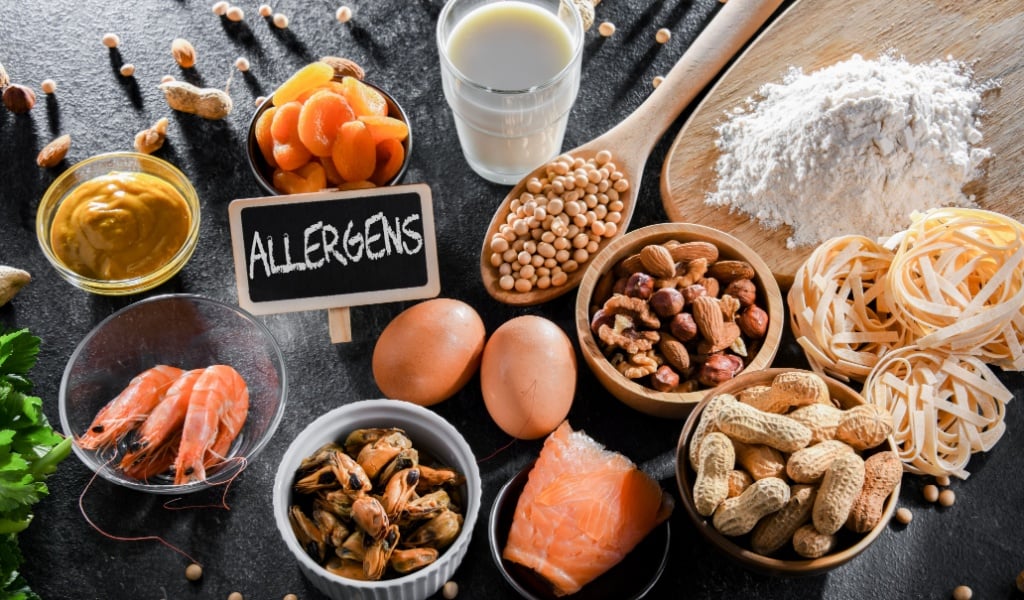Are you one of those people who love to travel but are hesitant because of food allergies? Don’t worry; we are here to guide you on how to travel safely and confidently.
Most of us have traveling the world as a significant part of our bucket lists, but for those with food allergies, this can also be a discouraging vision. Trying new cuisines requires cautious planning and mindfulness to avoid likely allergic reactions. Whether you’re allergic to gluten, peanuts, shellfish, or any other food item, these guidelines, supported by professional opinions, will help you travel safely and soundly.

Do Your Research Before Leaving
Before starting your trip, study your destination’s food and common allergens. Some places have different food labeling rules or might use different ingredients from your country. Therefore, considering these specifics is essential. This knowledge may guide you to make safe food selections while traveling.
Study Basic Sentences in the Native Language
Learn important sentences in foreign languages linked to your allergies. Sentences such as “Does this dish have gluten?” or “I’m allergic to peanuts” can assist you in conveying your dietary requirements to restaurant workers and locals while reducing the risk of mistakes.
Inform Airlines and Lodgings Upfront
When booking your air tickets and scheduling reservations, notify your airlines and lodging about your food allergies. Many airlines can provide special dietary requirements with prior notice, ensuring you have safe choices while flying. Likewise, guesthouses and hotels may offer allergen-free lodging or help organize harmless meals. It’s wise to recheck with the establishments closer to your trip date to ensure your requirements are acknowledged.
Carry Emergency Medication
Always take your prescribed medications in your hand luggage, such as epinephrine auto-injectors for major allergic reactions. It is crucial to always have easy access to your medication, as you might have to act fast in case of an emergency. It is also advised to have an emergency plan on paper describing your allergy, emergency contacts, and actions to take in case of an adverse reaction.
Carry Safe Snacks
Carry safe snacks from home to sustain yourself while traveling because you may not be able to find the right food choices as soon as you arrive. Carrying familiar snacks gives you peace of mind since you always have something to eat that is harmless for your allergies, especially in circumstances where allergen-free choices are few. Snacks like dry fruits, granola bars, or nut-free mixtures are suitable choices for traveling.
Discover Allergy-Friendly Eateries and Supermarkets
Find allergy-friendly eateries, cafes, and supermarkets at your destination. Use internet sites or apps that specify allergen-friendly dining choices. This practical method helps you identify safe dining facilities early and keeps you from unwanted tension during your tour. Internet sites like “AllergyEats” deliver reviews and ratings focusing on allergy-friendly choices, offering important observations into harmless dining picks.

Be Careful with Buffets and Street Food
Be extra cautious when eating buffets or street food. Seven Corners, a travel insurance provider, warns that cross-contamination is typical in these surroundings, raising the risk of unintended contact with allergens. If unsure, go for freshly cooked food where ingredients can be verified or ask for changes to guarantee your well-being. When placing an order, some travelers find it helpful to see the methods used in preparing food to reduce the chance of coming into contact with allergies.
Have Effective Communication with Restaurant Employees
When dining out, communicate your food allergies clearly to the restaurant employees. Talk to the manager or chef immediately to inform them about your dietary limits and ensure your meal is made safely. Stop taking it lightly or assuming a dish might be harmless, and constantly confirm ingredients and cooking approaches to avoid unintentional contact. Ask about transmission risks and request basic, unseasoned meal arrangements to reduce allergen contact.
Stay Informed and Versatile
Stay up-to-date about food allergy supplies and support groups at your holiday destination. These groups can offer important observations and suggestions based on their experiences in the area. Stay flexible in your dining selections and be ready to adjust your plans if needed to prioritize your health and safety. Consider joining internet discussions or social media groups for explorers with food allergies to discuss guidelines and encounters with others going through the same challenges.
Be Ready for Emergency Situations
Learn the local emergency contact number and the location of the closest clinic or hospital to your holiday destination. This information is vital if you encounter a major allergic reaction and want fast medical care. Having this information easily accessible can make a substantial difference in treatment effectiveness and response periods. Take a health warning necklace or bracelet signifying your allergies for fast recognition in emergency situations.
In Conclusion
Traveling with food allergies doesn’t have to be terrifying after all. By taking preventive measures, you can reduce the risks and enjoy a safe food experience overseas. Remember that being prepared is important, so plan, stay attentive, and taste every minute of your travel diary with relief and happiness.
One of the pleasures of traveling is accepting different cultures through their food. With these complete tips, you can navigate the food landscape confidently, knowing that you’re taking the required safety measures to protect your health and safety while experiencing the wonderful miracles of the world. Happy and safe travels!



